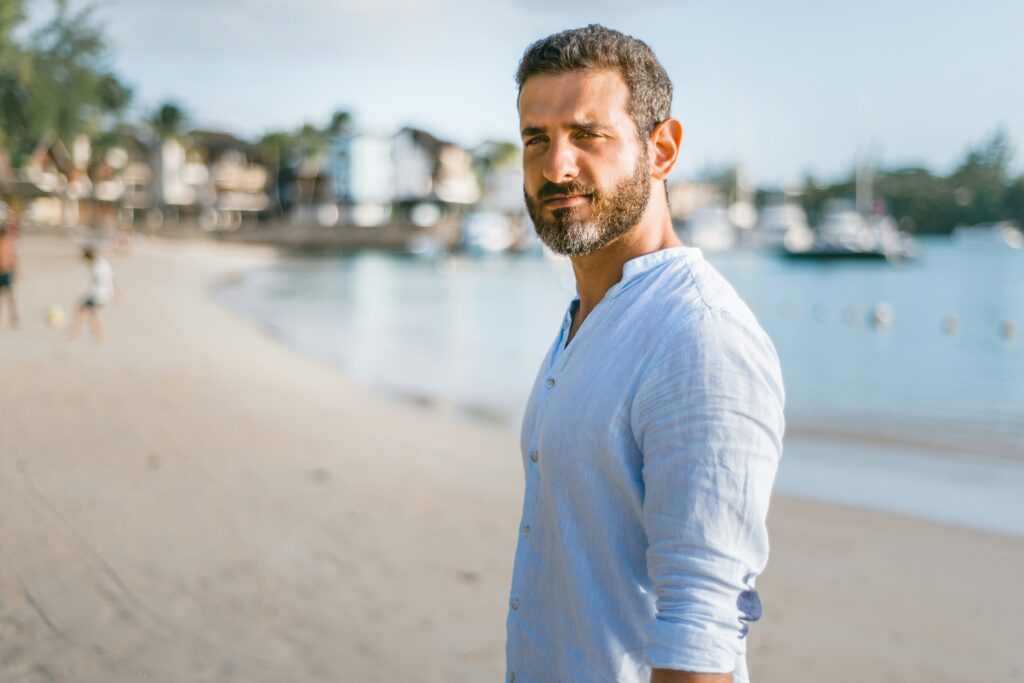
Written by Cassie Donnelly
Testosterone levels in men are declining at an alarming rate. Once associated primarily with aging, low testosterone (or testosterone deficiency) is now affecting men younger than ever before. But why is this happening? The truth is, it’s not just about getting older—it’s about how our modern lifestyles may be sabotaging the body’s ability to maintain healthy testosterone levels. Improving this condition may not be solely about getting testosterone replacement or TRT. It is best to consider the root cause.

There’s a complex hormonal cascade that determines testosterone production, and it’s heavily influenced by stress and diet. When your body is under chronic stress, it produces more cortisol, the primary stress hormone. While cortisol itself is neither good nor bad, it is not meant to stay elevated for long periods, as it often does during chronic stress. This leads to a phenomenon known as the cortisol steal, where the body sequesters nutrients away from the production of sex hormones (including testosterone) and redirects them to produce stress hormones.
Stress, cortisol, zinc deficiency, and alcohol, among other factors, all increase the activity of an enzyme that converts testosterone into estrogens. This further decreases testosterone production while increasing estrogen levels in men. Additionally, diets high in refined carbs and sugars spike insulin levels, which further suppresses testosterone. Excess abdominal fat plays a significant role by upregulating enzymes like aromatase, which converts testosterone into estrogen, and 5-alpha-reductase, which converts testosterone into DHT—a hormone linked to male pattern baldness and prostate issues.
| Foods and Supplements/Botanicals that Can Help Inhibit Aromatase: | Foods and Supplements/Botanicals that Can Help Inhibit 5-alpha Reductase: |
| Vitamin C, quercetin, chrysin, zinc, dietary fiber, flax seed, soy, grape seed extract, white button mushrooms, and green tea. | Stinging nettle root, saw palmetto, chaste tree berry (Vitex), black cohosh, pygeum, green tea, flax seed, soy, omega-3 fish oils/fatty fish, quercetin, krill, beta-sitosterols, and L-lysine. |
There is more to the story and many root causes of testosterone deficiency, such as untreated sleep apnea, but the vast majority of cases are related to testosterone’s kryptonite—cortisol and insulin. While testosterone replacement therapy (TRT) is an option, it’s not the full solution. We also need to ensure that:
- Your body is not converting testosterone into estrogen and DHT,
- Your cells are sensitive to testosterone, and
- Your body can transport and detoxify your hormones properly.
Without addressing these factors, TRT alone might not deliver the results you’re looking for.
The good news is that lifestyle modifications can make a big difference…
- Regular exercise: Particularly resistance training.
- Balanced diet: Low in processed foods.
- Stress management: Techniques like meditation, deep breathing, or mindfulness.
- Targeted nutrients and botanicals: As discussed above.
- Quality sleep: Ensuring your body gets the rest it needs.
These steps can support healthier testosterone levels naturally, setting a solid foundation for any additional therapies and helping your body make the most of its available testosterone.
Optimal testosterone levels are not only related to sexual function, but have a role in maintaining cardiovascular health, bone density and bone marrow stimulation, maintaining healthy muscle mass, supporting the liver, cognition and mood.
You May Have Low Testosterone If…
If you’re experiencing stubborn weight gain around your midsection, prediabetes, diabetes, lower libido, loss of morning erections, sleep apnea, male pattern baldness, hair loss on the shins, changes in memory and cognition or chronic fatigue, low testosterone could be the culprit. These are common signs that your hormone levels may be out of balance. One helpful tool to assess your risk is the ADAM (Androgen Deficiency in the Aging Male) questionnaire, which can provide a quick snapshot of whether these symptoms may be related to low testosterone.
Take the ADAM Questionnaire here
What Labs Should You Ask For?
If you suspect low testosterone and we’re not your healthcare provider, it’s still important to know which labs to ask for. Comprehensive hormone testing goes beyond just measuring total testosterone. Here are the key tests you should consider discussing with your medical provider:
- Total Testosterone: Gives a snapshot of overall testosterone levels but doesn’t tell the whole story.
- Free Testosterone: Measures the testosterone that’s actually available for your body to use.
- Sex Hormone Binding Globulin (SHBG): Helps determine how much testosterone is bound and unavailable.
- Estradiol (E2): Important to measure since excess testosterone can convert into estrogen.
- DHEA-S: A precursor hormone that plays a role in testosterone production.
- Cortisol: Elevated levels can inhibit testosterone production, making it important to check.
- Vitamin D: Adequate levels are essential for testosterone production and overall hormone balance.
- Fasting Insulin: Elevated insulin can lead to insulin resistance and is linked to lower testosterone levels.
- Luteinizing Hormone (LH) and Follicle Stimulating Hormone (FSH): These give insight into how well your body is signaling for testosterone production.
Note: When testing hormones—Blood should be drawn fasting, first thing in the morning as close to 8 am as possible, 24 hours after last heavy exertion/sexual activity, and 8 hours after last food intake. Results may not be accurate if you are ill at the time of lab draw or if you take medications that can interfere with testosterone.

Herbs and Supplements to Consider
Below are some other supplements that can be used with some clinical guidance. It is a good idea to get labs drawn to check vitamin D and zinc levels as well as looking at liver enzymes while taking ashwagandha. When taking anything that promotes or replaces testosterone production like DHEA or TRT, speak to your health care provider before adding a new supplement routine, especially when adding something like DIM or chrysin to help prevent testosterone’s conversion to estrogen.
- Vitamin D: Vitamin D plays a crucial role in testosterone production. Low levels are linked to lower testosterone, so maintaining adequate Vitamin D is essential.
- Zinc: Zinc is a key mineral involved in testosterone production. Deficiency in zinc is often associated with lower testosterone levels, and supplementing can help improve hormone balance.
- Mucuna (Mucuna pruriens: This herb is known for its dopamine-boosting properties, which in turn can help support testosterone levels.
- Ashwagandha (Withania somnifera): A well-known adaptogen, Ashwagandha helps the body manage stress. By balancing cortisol levels, it can create a better environment for testosterone production.
- DHEA: DHEA is a precursor hormone that your body can convert into testosterone. Supplementing with DHEA may help boost testosterone levels, particularly in cases of adrenal insufficiency or hormone imbalances.
Here is a great study reviewing various botanical therapies for low testosterone: https://www.sciencedirect.com/science/article/abs/pii/S0378874118333646





Read the Comments +